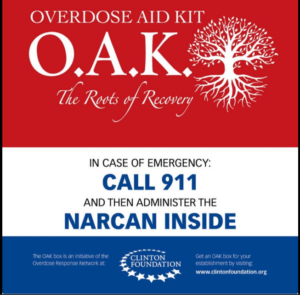🧑🏼🏫I recently had a powerful conversation with my nursing students about the critical role of community support and continuing care planning in successful behavioral health recovery. 🧑⚕️ We discussed the ideal scenario – a comprehensive, patient-centered approach that sets individuals up for success. 👍 But the conversation took a sharp turn when we explored the harsh reality of inadequate discharge planning, particularly administrative discharges that prioritize bed availability over patient well-being. 😞
👀also: The Role of Peer Support in Collaborative Care
This led us to a difficult question: what happens when proper planning falls short? 🤔 As the students had discovered, the potential consequences are devastating. 😥 Patients discharged without adequate aftercare, lacking the support and resources they desperately need, face increased risks of relapse, harm, and even death. The risk of suicide and/ or overdose following an unanticipated or poorly planned discharge is particularly well documented. 💔 My students shared their deep concerns about these potential outcomes, and their passion for patient advocacy ignited a fire in me to delve deeper into this issue. 🔥
This isn’t just a theoretical concern. 😟 My colleague, Bridgette Vail, and I also recently had a sobering conversation about the alarming trends we’re seeing in healthcare facilities across the country. 🏥 We’re astounded, saddened, and frankly, afraid of the tremendous need for support in this area. 😨 It’s clear that many patients are being discharged prematurely, without the necessary resources to navigate the challenges of recovery. 🚧
Later that week, I had the pleasure of discussing this issue with Drass & Associates very own Attorney Advisor, Kevin Hyer, founder of The Hyer Calling Foundation (THCF), during his birthday lunch at Philadelphia’s iconic Penrose Diner. 🎂 THCF provides vital after-treatment support, often stepping in to fill the gaps when healthcare providers fail to create comprehensive continuing care plans. Kevin, drawing from his personal experience, shared invaluable insights into the challenges faced by patients and families navigating the complexities of a recovery in the community.
🕴️Kevin highlighted the exceptional support he received from his former firm, Obermayer, who demonstrated an extraordinary commitment to his well-being and recovery journey. Not only were they attentive and supportive of Kevin personally, but they have also become increasingly invested in supporting mental health resiliency efforts for the community as a whole. This sparked a deeper conversation about the legal community’s responsibility to defend those who have been failed by the system. 💪
With our “attorney/LNC” hats on, we explored the potential role of litigation in addressing this crisis. ⚖️ Could legal action be a catalyst for change? 🤔 While acknowledging the inherent difficulties in proving direct causation and damages, we recognized the power of litigation to shine a spotlight on this often-overlooked issue and drive much-needed reform. 📢
👂To further explore these issues, and consider the most effective next steps, I’m eager to hear your perspectives and experiences:
- Prevalence: How often are patients harmed due to inadequate discharge planning? 🤕
- Legal Strategies: Are there successful litigation strategies or precedents we can learn from? 📚
- Innovative Solutions: What creative solutions can we develop to improve discharge planning and aftercare? 💡
- Advocacy: How can we advocate for policies and practices that prioritize patient well-being over bed availability? ✊
- Collaboration: What opportunities exist for collaboration between legal professionals and healthcare providers to improve discharge planning processes? 🤝
- Public Awareness: How can we raise public awareness about the importance of adequate discharge planning and aftercare? 📣
📦Now, more than ever, we need to think outside the box. 🧠 Traditional standards and boundaries are being tested, ⚖️ and we must rise to the challenge to protect the vulnerable and ensure that our behavioral health patients receive the comprehensive care they deserve. 🏥
💬PLEASE LEAVE A COMMENT WITH A THOUGHT, SUGGESTION, CONSTRUCTIVE CRITICISM, COMPLIMENT OR QUESTION. 🗯️







